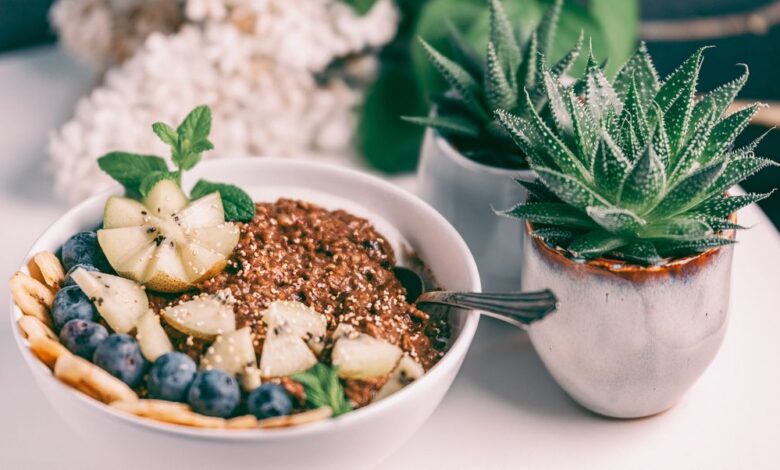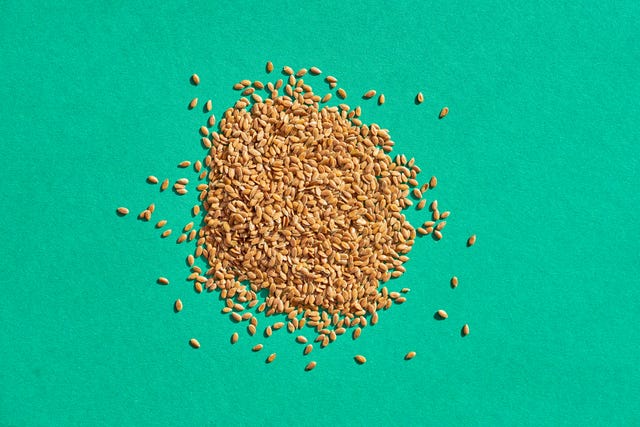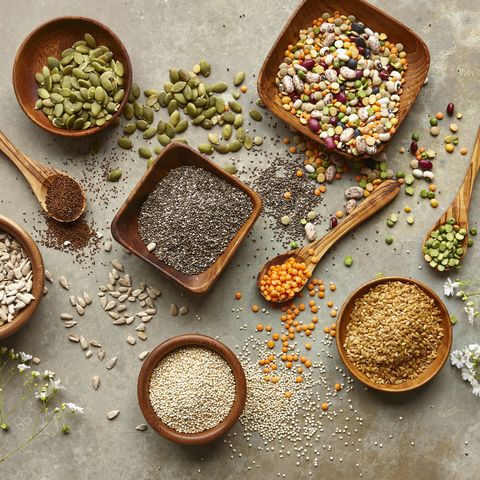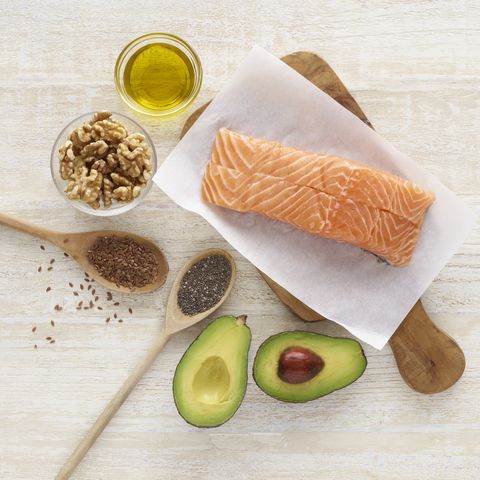5 Flaxseed Health Benefits – Are Flax Seeds Good for You?

[ad_1]

Benjamin Egerland / EyeEmGetty Images
Flaxseeds — the teeny-tiny seeds on top of on your smoothie bowl or avocado toast — do more than just add the finishing touch to a healthy breakfast. These nutritious powerhouses contain a plethora of heart-healthy unsaturated fats plus vitamins and minerals that can benefit your body in a number of ways.
And while you may think of them as just a crunchy garnish, flaxseeds also provide a one-two punch of plant-based fiber and protein, powering you up in the morning and helping you stay energized until the afternoon. So before you pour a scoop of flax into your granola, get the full scoop on what these seeds can do.
What are flaxseeds?
Flaxseeds come from the flax plant (Linum usitatissimum), a species that’s cultivated all over the world for both its edible seeds and weavable fibers. Humans have used flax for more 30,000 years, including in Ancient Egypt and Rome. Today, you’re likely find flaxseed at health food stores or supermarkets in both whole and powdered form.
“Whole flaxseeds have a longer shelf life but can be difficult for the body to break down and digest,” says Stefani Sassos, MS, RDN, CDN, Registered Dietitian for the Good Housekeeping Institute. “Ground flaxseeds are easier for the body to digest but do tend to have a shorter shelf life, so it’s best to store them in the fridge to prevent spoiling.”
Flaxseed Nutrition Stats
Serving Size: 2 tablespoons
- 70 calories
- 4.5g total fat
- 0g cholesterol
- 0g sodium
- 4g carbohydrates
- 3g dietary fiber
- 0g total sugars
- 3g protein
- 0mcg vitamin D
- 24mg calcium
- 1mg iron
- 113mg potassium
Are flaxseeds healthy?
Yes, flaxseeds make for a great, health-conscious addition to your diet. Just like other seeds, they include a surprising amount of vitamins, minerals, fiber, and good-for-you fats. In fact, it’s worth adding pumpkin, sesame, sunflower, chia, and hemp seeds to your pantry too.
However, people taking medications should take some precaution. “One important thing to note is that flaxseeds may decrease absorption of medications,” Sassos says. “It’s best to consume flaxseeds at least an hour before or two hours after any medicine or prescription. It also can affect blood clotting, so speak with your doctor or healthcare provider if you are on any anticoagulants or other medications that slow down blood clotting.”
What are the health benefits of flaxseeds?
These tiny seeds pack quite a punch in the health department. Here’s what they’re doing behind the scenes:
Flaxseeds are great for digestion.
Flaxseed is good sources of fiber with about 3 grams per tablespoon, or 11% of what you need in a day. Getting enough fiber can help keep your GI tract in tip-top shape. Fiber is also shown to slow the absorption of carbohydrates during the digestive process, meaning it can help control blood sugar levels and make you feel fuller, longer.
They support healthy hair growth.
If you’re looking for healthier locks, try eating more flaxseeds along with more fish, nuts, and other produce. The polyunsaturated omega-3 fatty acids inside can help nourish your hair and scalp and prevent dryness.
Flaxseeds can help lower cholesterol.
These powerful seeds contain phytosterols, plant-based compounds that can help reduce LDL (or “bad”) cholesterol in the body. They do it by stopping your digestive system from absorbing as much cholesterol, thereby lowering the levels in your blood. In fact, getting enough of these phytosterols may reduce total cholesterol by up to 10%, some research shows.
They promote a healthy heart.
Flaxseeds comes chock-full of omega-3 fatty acids and lignans, another plant-based compound that can lower your risk of stroke, according to research published in Nutrition Reviews. That combo — plus the aforementioned cholesterol-lowering benefits — can help keep your heart pumping just the way it should, per American Heart Association.
Flaxseeds can boost your brain.
Those plant-based omega-3’s you keep hearing about? They’re also linked with improved cognition and brain function. Their anti-inflammatory and antioxidant effects can help brain cells stay healthy and potentially protect against neurological diseases.
What are flaxseeds good for?
With fat, fiber, and protein, flaxseeds will make whatever you’re cooking a little more filling and add a slightly nutty taste. You can also use flaxseeds as a vegan egg substitute when you’re baking. Add one tablespoon ground flaxseeds to three tablespoons water and let sit for about five minutes to thicken. This mixture is one-to-one swap for a regular egg.
What are some ways to eat flaxseeds?
Flaxseeds add nuttiness to pretty much any meal or snack. Get more in your diet by trying the following:
- Sprinkle ground flaxseeds on your morning yogurt or cereal.
- Try them in your weekend pancakes for a nuttier taste.
- Add some to your afternoon smoothie for a protein boost.
- Scatter some flaxseeds on top of a salad.
- Mix some into your favorite granola.
- Use flaxseed oil to make a healthy homemade salad dressing.
- Season your roasted veggies with a handful of flaxseeds.
- Use as a garnish on a favorite soup.
This content is created and maintained by a third party, and imported onto this page to help users provide their email addresses. You may be able to find more information about this and similar content at piano.io
[ad_2]
Source link






